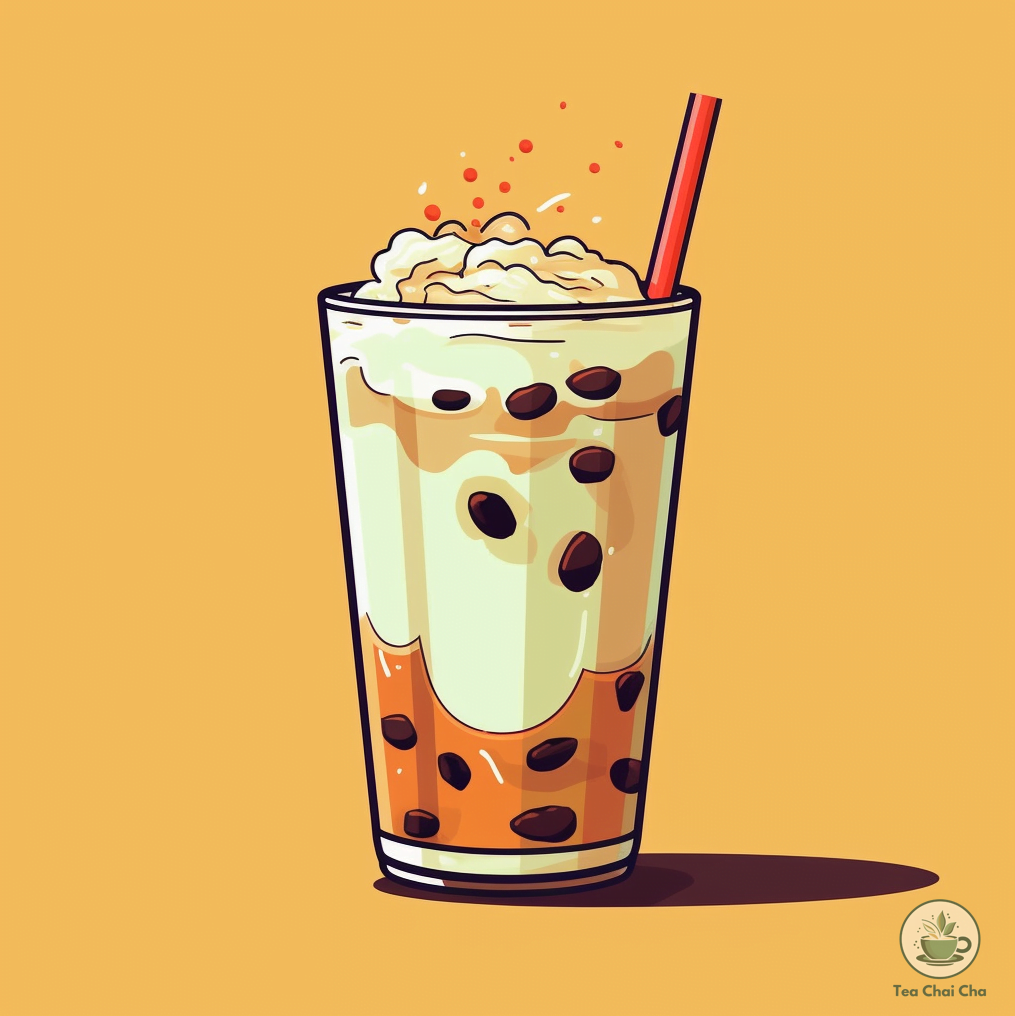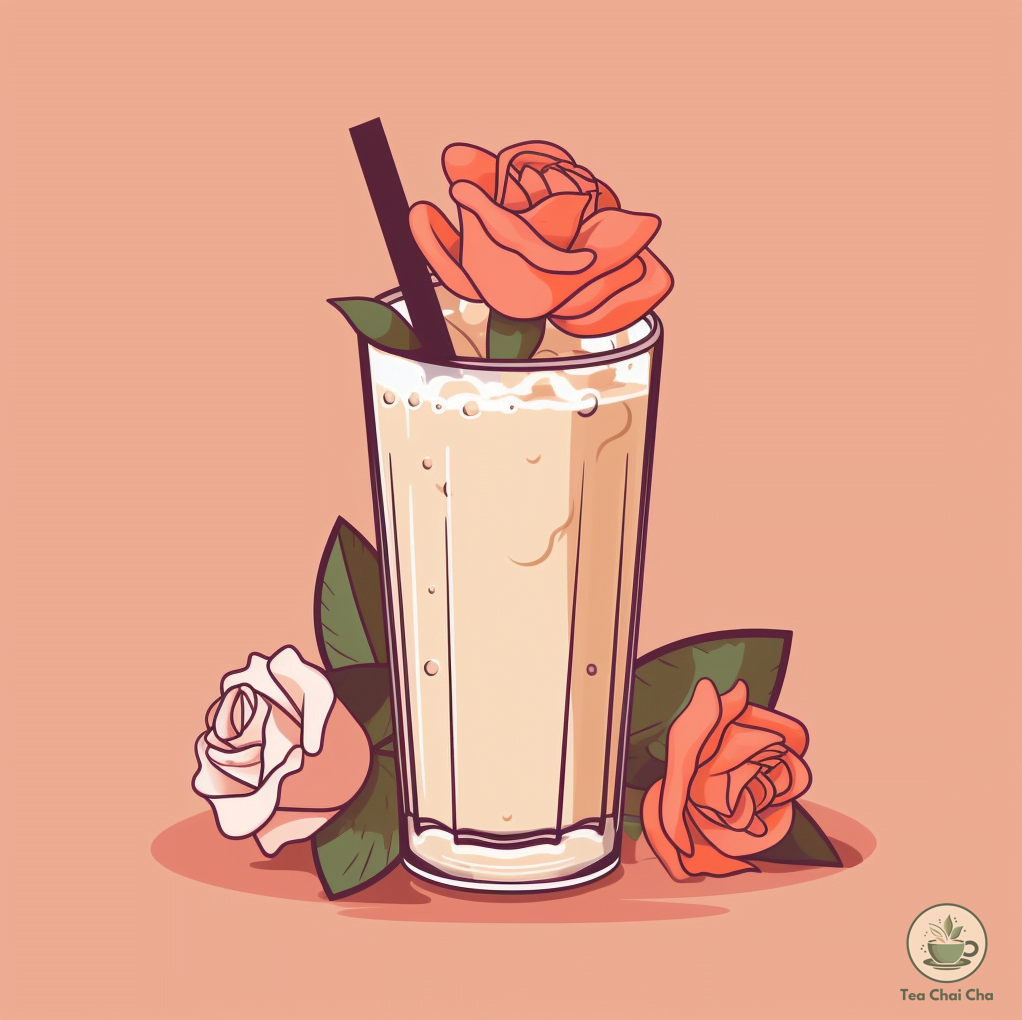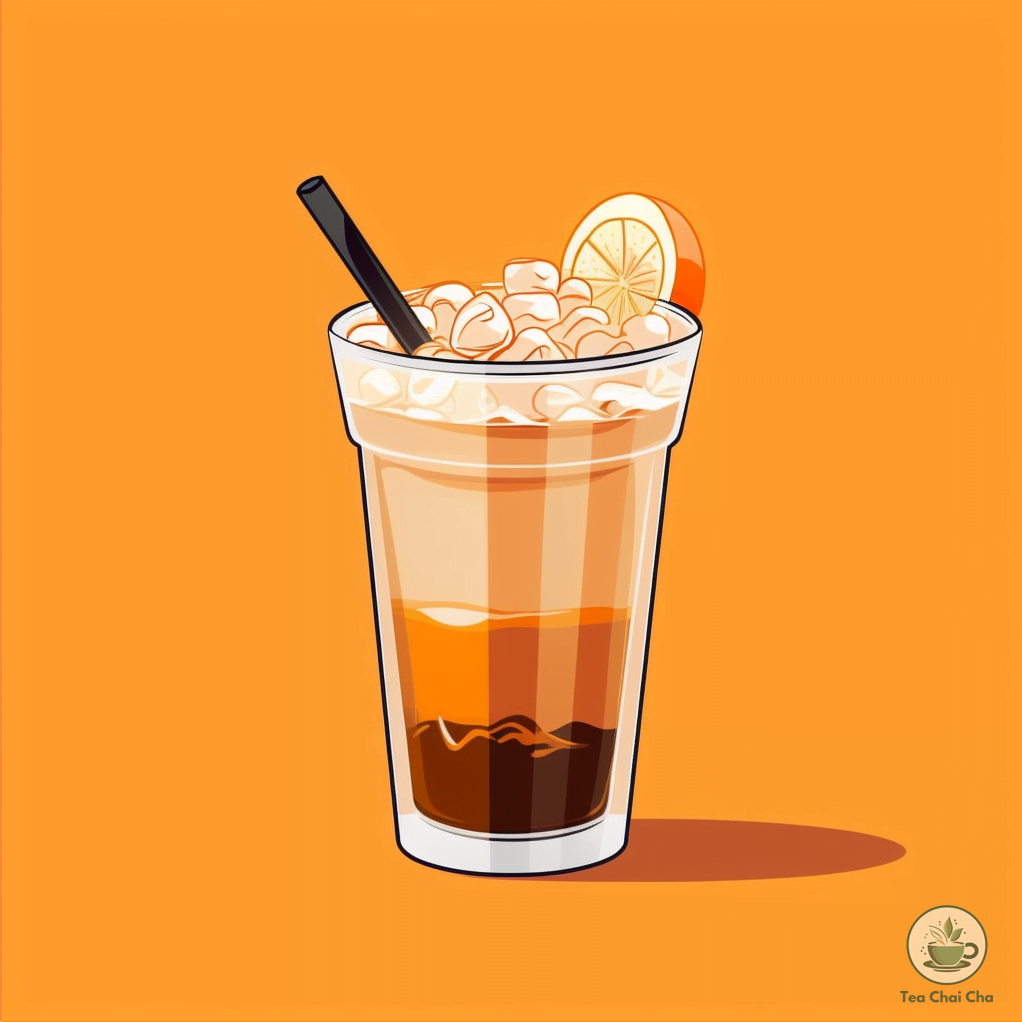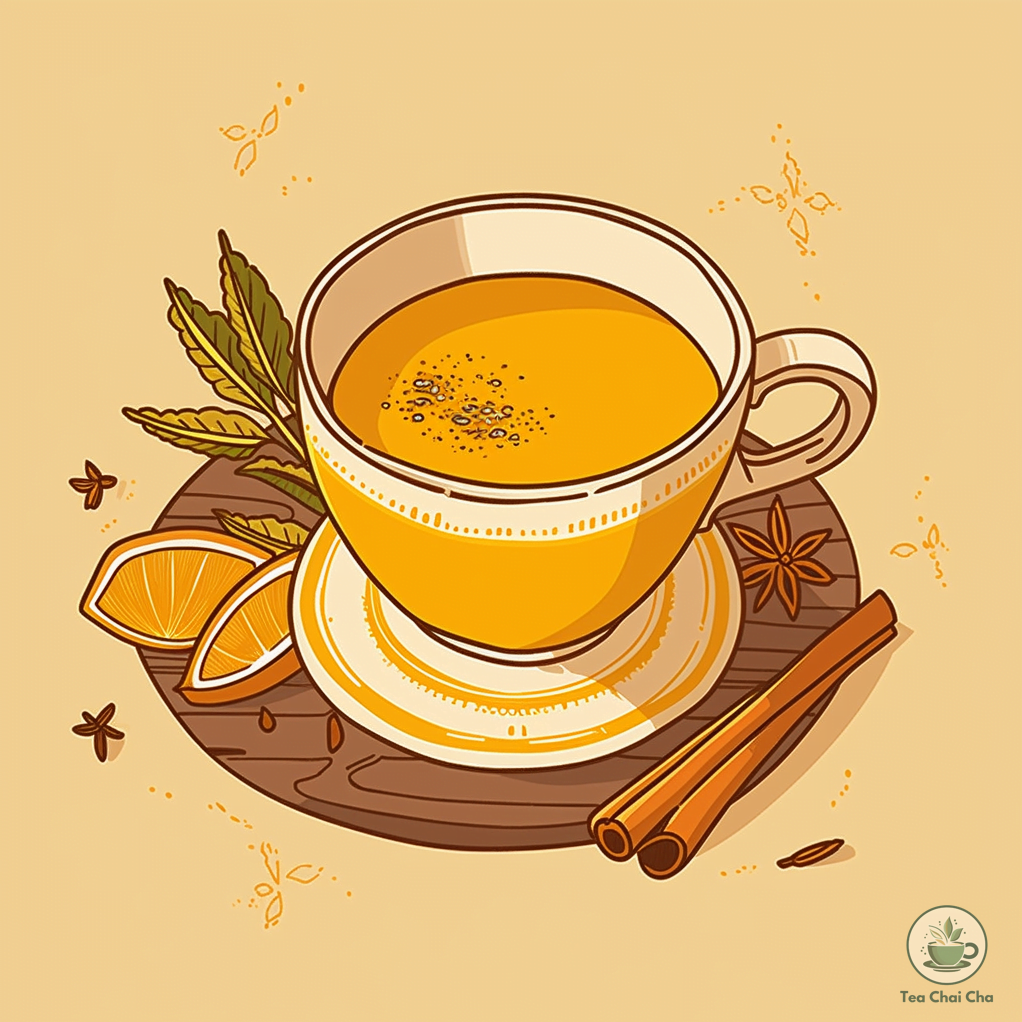In a world buzzing with flavors, trends, and irresistible concoctions, one drink stands out as a reigning favorite – milk tea.
Whether you call it boba, bubble tea, or simply milk tea, there’s no denying its immense popularity.
From the streets of Taipei to the bustling avenues of New York City, milk tea has conquered the taste buds of people worldwide.
But amidst the creamy swirls and tantalizing pearls, there’s a question that often lingers in the minds of avid milk tea enthusiasts:
Does milk tea contain caffeine? YES, milk tea has caffeine from its tea base! But….
Want to learn the deets on this ”But” and why does it matter?
I’ll explain it all and more in this post today!
Keep scrolling, it’s about to get interesting!
So, Does Milk Tea Have Caffeine in It? Really?
Yes, milk tea does contain caffeine and it can be as high as 200 mg and as low as 10 mg per serving.
The caffeine content in milk tea can vary depending on a few factors.
The type of tea used as a base plays a significant role.
Black tea, which is commonly used in traditional milk tea recipes, contains a moderate amount of caffeine.
On average, an 8-ounce cup of black tea has about 40-70 milligrams of caffeine.
But here’s the thing – milk tea isn’t always made with black tea.
You’ve got options!
Green tea, oolong tea, and even herbal teas can be used as a base.
These teas generally have lower caffeine content compared to black tea.
So, if you opt for a milk tea made with them, your caffeine intake will be on the milder side.
Now, about those boba pearls – they don’t contain caffeine themselves.
They’re more about adding that delightful chewy texture to your drink.
So, if you’re worried about caffeine, focus on the tea base.

How Much Caffeine Is in a Cup of Milk Tea?
The amount of caffeine in a cup of milk tea can vary depending on several factors, including the type of tea used as a base, the brewing method, and the serving size.
Here’s a general guideline for the caffeine content in different types of milk tea:
Black Tea-based Milk Tea Caffeine
A typical 8-ounce (240-milliliter) cup of black tea-based milk tea contains approximately 40-70 milligrams of caffeine.
However, this can vary depending on factors like the tea brand, steeping time, and tea-to-milk ratio.
Green Tea-based Milk Tea Caffeine
Milk tea made with green tea generally has a lower caffeine content than its black tea counterpart.
An 8-ounce cup of green tea-based milk tea may contain around 20-45 milligrams of caffeine (matcha milk tea can exceed this limit significantly.)
Oolong Tea-based Milk Tea Caffeine
Oolong tea falls somewhere in between black and green tea when it comes to caffeine content.
A cup of oolong tea-based milk tea might have approximately 30-50 milligrams of caffeine in an 8-ounce serving.
Herbal Tea-based Milk Tea Caffeine
Herbal teas, like chamomile or peppermint, used as a base for milk tea, typically contain very little to no caffeine.
So, milk tea made with herbal tea will likely have minimal caffeine content, if any.
Custom Blends-based Milk Tea Caffeine
Many tea shops create their unique tea blend-based milk teas, combining different types of teas, herbs, and flavorings.
The caffeine content in these custom blends can vary widely, so it’s a good idea to ask the tea shop or check the label for specific details.

Does Milk Have Any Effect on Caffeine in Milk Tea?
Absolutely, milk plays a role in the caffeine experience of your milk tea.
But do you remember the “But” I used earlier to catch your attention?
Yes, in the intro!
Milk tea has caffeine but the effect of caffeine on your body may not be the same as it is with regular brews.
Here’s the lowdown in simple terms:
-> Dilution Factor
When you add milk to your tea, it dilutes the concentration of caffeine.
So, the more milk you put in, the less intense the caffeine hit.
-> Texture and Taste
Milk also brings its creamy texture and flavor to the party.
This can make your milk tea taste smoother and milder, masking some of the bitterness that caffeine can have.
-> Caffeine Release
The caffeine in tea is released during the brewing process.
When you mix in milk afterward, it doesn’t alter the caffeine content already in the tea; it just blends it in.
Here’s How It Works
As I’ve said, milk doesn’t alter the caffeine content in your tea; that remains the same.
However, it does something quite magical to the way caffeine affects your body.
You see, milk contains proteins, specifically caseins, which can bind to caffeine molecules including other polyphenols.
When caffeine and casein meet in your milk tea, it’s like a friendly handshake in a flavor-filled party.
Casein helps slow down the absorption of caffeine in your system.
This means that the caffeine buzz you get from your milk tea is more of a gentle, sustained ride rather than a rollercoaster spike.
No sudden jolts of energy or caffeine crashes here!
So, thanks to milk, you get to enjoy the delightful flavor of your milk tea without the jitters and the rapid rise and fall of caffeine in your bloodstream.

Decaf Milk Tea
I get it – sometimes you’re in the mood for milk tea, but caffeine is not invited to the party.
That’s when you might think to brew some milk tea using decaf tea.
The secret to decaf milk tea lies in using decaffeinated tea leaves.
These are tea leaves that have undergone a process to remove most of their caffeine content while retaining their rich, full-bodied flavor.
So, you still get that signature tea taste without the caffeine jolt.
But decaf milk tea isn’t as common as regular milk tea on most menus.
You might need to specifically ask for it or even make it at home by using decaf tea bags or loose tea leaves.
The preparation is quite similar to regular milk tea.
You brew your decaf tea, add milk (or a milk substitute if you prefer), and sweeten to taste.
Some might argue that the lack of caffeine allows the other flavors to shine even more brightly, giving you a different, yet equally satisfying, milk tea experience.
How Many Milligrams of Caffeine is in Decaffeinated Milk Tea?
Decaffeinated milk tea typically contains only trace amounts of caffeine.
The exact caffeine content can vary depending on the type of decaffeinated tea used and how it’s prepared.
But in general, it’s quite minimal.
A typical 8-ounce (240-milliliter) cup of decaffeinated milk tea may contain anywhere from 0 to 5 milligrams of caffeine.
Some brands of decaffeinated tea claim to have virtually no caffeine, while others may have a tiny residual amount, often less than 5 milligrams.
To put this into perspective, it’s a significantly lower caffeine content compared to regular milk tea.
Regular milk teas can contain anywhere from 10 to 200 milligrams of caffeine, depending on the type of tea used and its brewing strength.

Are There Caffeine-Free Milk Teas?
Absolutely, there are caffeine-free milk teas out there.
And they’re a delightful option for those moments when you want the comforting taste of milk tea without the caffeine jolt.
Personally, I love caffeine-free milk teas because they let me enjoy the soothing qualities of milk and tea without worrying about staying up all night.
Here are a few caffeine-free milk tea options you might want to explore:
Herbal Tea-based Milk Teas
Herbal teas like chamomile, peppermint, rooibos, or hibiscus can be used as a caffeine-free base for milk teas.
These herbal infusions offer a variety of flavors and aromas.
You can combine them with milk and sweeteners to create delicious caffeine-free milk teas.
Fruit-Flavored Milk Teas
Some milk tea shops and brands offer fruit-flavored milk teas that use fruit concentrates, purees, or syrups as the main flavoring.
Since these teas are not made from traditional tea leaves, they are naturally caffeine-free.
Decaffeinated Tea-based Milk Teas
As I mentioned earlier, decaffeinated tea leaves can be used to make milk tea.
While they may contain trace amounts of caffeine, it’s generally minimal and considered caffeine-free for practical purposes.
When I’m on the hunt for a caffeine-free milk tea, I usually look for options made with herbal teas as the base.
Chamomile, for instance, makes a soothing and caffeine-free milk tea that’s perfect for winding down in the evening.
Many milk tea shops these days offer a caffeine-free option on their menu.
So, when I’m out and about, I ask the barista for their caffeine-free milk tea recommendations if I want to try something new or unique.
7 Factors Affecting Caffeine Content in Milk Tea
There are a few factors at play here that can make your milk tea more or less caffeinated, and I’m here to spill the tea on them.
1. Tea Type
The type of tea used as the base sets the caffeine stage.
Black tea, like the diva it is, packs the most caffeine punch.
Green tea is its calmer sibling, with less caffeine.
Oolong tea sits somewhere in between, and herbal teas are the cool, caffeine-free cats of the bunch.
2. Brewing Time
How long you let your tea steep matters.
The longer it hangs out in hot water, the more caffeine it absorbs.
3. Brewing Temperature
Caffeine is more soluble in hot water, so brewing your tea at a higher temperature can extract more caffeine from the tea leaves.
However, it can also make the tea taste bitter.
Conversely, brewing at a lower temperature can result in a milder flavor and potentially less caffeine extraction.
4. Tea-to-Milk Ratio
The amount of milk you add plays a role too.
More milk means less caffeine per sip.
Think of it as caffeine dilution with a creamy twist.
5. Sweeteners and Flavorings
If you go wild with sugar, syrups, or other flavorings, they won’t change the caffeine content.
But can influence how you perceive the caffeine kick.
Sugar can mask bitterness, making it easier to down a caffeine-loaded cup.
6. Tea Quality
The quality of tea leaves matters.
High-quality leaves tend to have a more robust flavor and potentially more caffeine.
It’s like the difference between a sports car and a scooter.
7. Brand and Preparation
Different brands and tea shops may have their secret milk tea recipes, which can affect caffeine content.
So, where you get your milk tea fix can be a caffeine wild card.

Which Milk Tea Has the Most Caffeine
| Milk Tea Type | Caffeine Content (per 8 oz) |
|---|---|
| Thai Milk Tea | 20-60 mg |
| Hong Kong Milk Tea | 30-50 mg |
| Matcha Milk Tea | 25-135 mg |
| Chai Milk Tea | 25-50 mg |
| Bubble Tea (Tapioca) | 30-50 mg |
| Earl Grey Milk Tea | 30-60 mg |
| Taro Milk Tea | 25-50 mg |
Which Milk Tea Has the Least Caffeine
| Type of Milk Tea | Caffeine Content (approximate) |
|---|---|
| Herbal Tea Milk Tea (e.g., Rooibos Milk Tea) | 0 mg |
| Decaffeinated Black Tea Milk Tea | 0-5 mg |
| Oolong Tea Milk Tea | 15-30 mg |
How to Order Boba Tea As a Caffeine-Conscious Tea Lover
I totally get it; sometimes, you want to indulge in some boba tea but keep the caffeine in check.
Don’t worry; I’ve got your back.
Let me guide you through ordering the perfect boba tea that’s just right for you.
1. Choose a Low-Caffeine Tea Base
Start your boba adventure by selecting a tea base that’s gentle on caffeine.
Opt for options like green tea, herbal teas, or fruit syrups.
All these generally have lower caffeine content compared to black or oolong teas.
Personally, I’m a fan of green tea for its milder caffeine kick.
2. Adjust Sweetness Levels
Most boba shops offer customizable sweetness levels.
If you’re calories-conscious, go for the “less sweet” option.
It allows you to enjoy the tea’s natural flavors without an overdose of sugar.
3. Choose Low-Calories Milk
If you’re trying to keep calories in check, consider non-dairy alternatives like almond milk, coconut milk, or oat milk.
They provide a creamy texture without adding extra calories.
Remember, milk does not have caffeine.
4. Tapioca Pearls or Not?
Decide whether or not to add tapioca pearls.
If you want to try something different, you can opt for fruit jelly, aloe vera, or even popping boba instead of the classic tapioca pearls.
These alternatives add a delightful burst of flavor.
5. Size Matters
When ordering, think about portion size.
Smaller sizes naturally contain less caffeine as there’s less tea base (unless, you customize it.)
So, if you’re trying to be cautious about caffeine, go for a smaller cup.
Plus, it’s a great way to enjoy the treat without feeling overwhelmed.
6. Special Requests
Don’t be afraid to make special requests.
Ask for decaffeinated tea if available, or request a tea blend with lower caffeine content.
Many boba shops are happy to accommodate your caffeine-conscious preferences.
7. Skip the Extra Caffeine Shots
Be mindful of extra caffeine sources like espresso shots or coffee-based blends.
If you’re truly caffeine-conscious, skip these add-ons to keep your boba tea caffeine-free or low in caffeine.
8. Avoid Chocolate Milk Tea
It’s best to steer clear of chocolate milk tea if you want to order low caffeine boba.
Chocolate contains natural caffeine, and when combined with the tea and milk in this beverage, it can significantly increase the caffeine content.
To stay on the safe side, opt for other flavors that don’t contain chocolate when ordering your boba tea.
Caffeine in Milk Tea vs. Coffee
| Beverage | Caffeine Content (per 8 oz or 240 ml) |
|---|---|
| Milk Tea (Chai) | 25-50 mg |
| Milk Tea (Matcha Bubble) | 20-200 mg |
| Coffee (Drip) | 95-165 mg |
| Coffee (Espresso) | 63 mg (per 1 oz shot) |
| Coffee (Instant) | 30-90 mg |
So, it really depends on the type of milk tea and coffee you’re talking about.
Some milk teas can be as strong as coffee, especially if they use caffeine-rich tea like matcha.
But in general, coffee tends to have more caffeine in each cup.
So, it’s about what you prefer and how much of a caffeine boost you’re looking for.
Does Milk Tea Affect Your Sleep?
Milk tea can make you feel sleepy because it has amino acids called tryptophan in it.
Tryptophan acts like a sleepy ingredient.
When you drink milk tea, this tryptophan does a special job.
It releases two things: serotonin and melatonin.
These two things are like sleep helpers.
They make you want to go to sleep.
Think about when kids drink milk before bedtime.
They often fall asleep easier, right?
It’s because of the tryptophan in the milk.
Now, you might think it’s the tea in milk tea that makes you sleepy.
But most of the sleepiness comes from the milk, not the tea.
The tea does have some serotonin and melatonin, just like milk, but it’s mostly the milk doing the sleepy work.
So, if you want a cozy bedtime drink, warm milk tea like Ginger Milk tea or Turmeric Milk tea can be a good choice.
Besides, if you are talking about iced milk teas, they usually has black tea base in them.
And as you know black tea have caffeine, it can mess with your sleep if you drink it in the evening or at night.
So, go for herbal milk teas if you want to enjoy a sound sleep and keep famous milk teas for brunch or in the afternoon.
Does Milk Tea Cause Dehydration?
Yes, milk tea can cause dehydration.
Drinking it a lot can make you feel thirsty.
Why?
Well, milk tea has lots of sugar and caffeine, which can make your body get rid of more liquid through pee.
So, when you enjoy a glass of milk tea, it might make your thirst go away for a little bit.
But it doesn’t really help your body stay hydrated like plain water does.
If you really like milk tea and don’t want to give it up, that’s okay!
Just remember to also drink plenty of water when you have it.
And try not to have too much milk tea in one day.
That way, you can enjoy its unique taste without getting dehydrated.
Related Tea Caffeine Guides
- Does Tea Have Caffeine?
- Does Herbal Tea Have Caffeine? Which One Has More Caffeine?
- Does White Tea Have Caffeine? High and Low Caffeine Options!
- Does Oolong Tea Have Caffeine?
- How Much Caffeine in Black Tea – High/Low Caffeine Black Teas
- How Much Caffeine in Green Tea – Numbers to Know!
